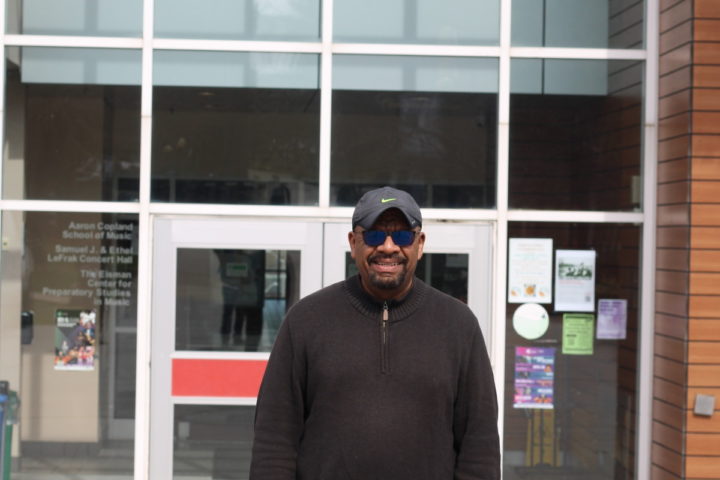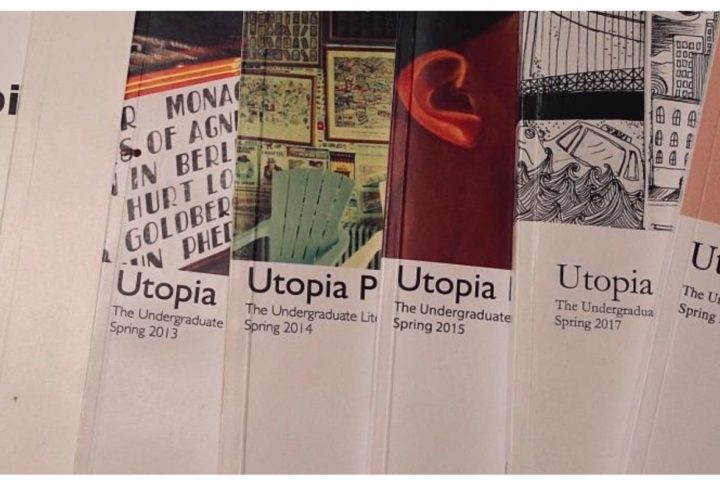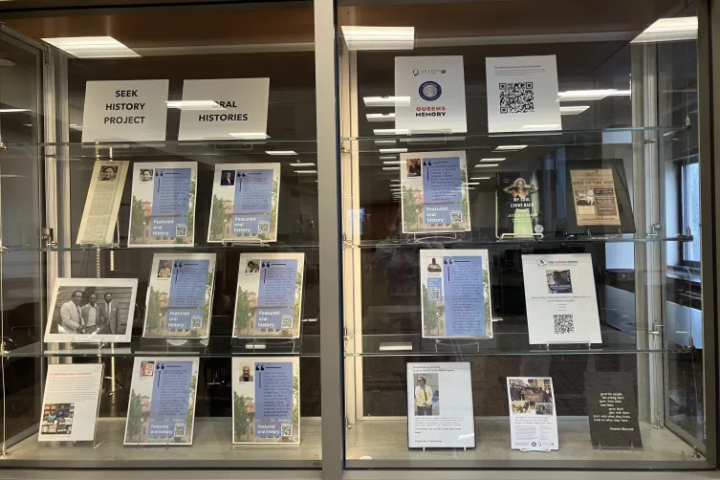Dr. Cynthia Kaplan Shamash, who was one of the last remaining Jews in Iraq, read a section of her memoir that explained how her people were brutally treated during the 1960s.
She read from “The Strangers We Became: Lessons in Exile From One of Iraq’s Last Jews” on March 3 in the Benjamin Rosenthal Library, with support from the Center for Jewish Studies.
Most of the Jews in Iraq left after World War II. Before that, Baghdad had a flourishing Jewish population. Back in the 1920s, 20 percent of the population was Jewish. In ancient times, Babylonia was home to many Jews, including Biblical prophets. But in modern times there are only 5 left, according to Shamash.
Shamash was born in Baghdad in 1963. As a child, she grew up in a community where a Jewish person was not able to practice their religion openly, including wearing kippahs or the Star of David.
“To me, I grew up worrying about the doorbell ringing, and that would mean my father was taken for some questioning, which means he would never come back,” Shamash said.
Shamash grew up hearing stories about her people’s oppression, and even tried to cover her accent. One of the great massacres of Jews in Baghdad occurred during Pentecost in 1941, after the new Iraq was established and anti-British sentiment was rising.
“Jews were slaughtered on buses and sidewalks, homes were looted, girls and women were violated,” Shamash said. “The British just stood by and allowed them to vent their frustration.”
By the time she was five, the assets of Iraqi Jews were frozen, Jewish men were beginning to lose their jobs and Iraqi universities would not accept Jewish students.
“We were not allowed to travel a few miles from our home, Jews were not allowed to have phones and Jews had to carry a yellow ID card, Nazi inspired,” she said.
There was constant surveillance by secret police and a fear of Zionistic attacks. Many Jews were suspected of being spies, including her father.
In 1969, there was a public hanging of 9 Jews in “the Freedom Square,” an event celebrated with belly dancers and candies. Many of the hanged were friends of Shamash’s father who had accused of being spies.
In 1972, when Shamash was almost 10, her family decided to escape over the Iranian border. They were caught and jailed for five weeks. During their captivity, many of her family’s belongings were looted.
“At one point, an officer took me alone into the interrogation room and, looking for a recording device, dismembered a doll I was carrying,” Shamash said.
Shamash’s family moved to Amsterdam and she went to school for a year in England. She later immigrated to America in 1991. Shamash went through five different countries as a child, including Turkey.
Shamash was elected to the Board of the World Organization of Jews from Iraq. She was featured in the New York Times in 2013, where she discussed the fate of the Iraqi Jewish Archives and the survival of her heritage.
The archives are still housed in Washington D.C., but there is no telling what may happen to them as the Iraqi government is demanding them back for their own museum. Some scholars have criticized the idea because of the history of archives in the area being looted.
“Memories make us grateful,” Shamash said. “They also remind us of our human vulnerabilities, and recognizing those vulnerabilities is the first step into becoming human.”













